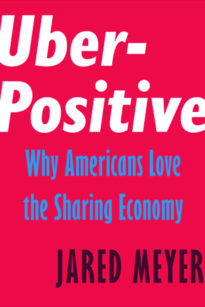Most Americans are rejecting the outdated regulations that curb the sharing economy. Yet regulators continue to try to box in ridesharing services by classifying them as Taxi companies.
Meyer explains in The Federalist:
Places as diverse as Austin, Texas, and Montreal, Quebec, have recently taken steps to suppress the sharing economy—specifically ridesharing—by treating the Uber as a taxi company. Regulators’ attitudes towards innovative new services can be summed up in one phrase: “Regulators gonna regulate.”
But when crafting regulation, policymakers need to keep in mind that the relationship between consumers and service providers has been transformed for the better in the sharing economy. Rather than keeping consumers safe, regulators are now threatening the growth of the new economy—growth that has proven to be a promising way to increase consumer choice, work opportunities, and economic growth.
For example, at every stage in ridesharing’s growth, established interests in the taxi industry have used claims about its dangers to scare politicians into acting. Each time, the claims have been shown to be overstated or blatantly false. Undeterred, the industry continues to use any political means available to maintain its monopoly. Rather than focusing on competing on Main Street, Big Taxi turns its attention to city halls and state capitols.
Meyer continues:
Rather than applying outdated regulations on the sharing economy in the form of limits on its growth or business models, policymakers need to allow legacy companies to update their business models to better compete. In other words, taxi companies need to be allowed to become more like Uber—not the other way around.
Read the full excerpt here. And learn more in Jared Meyer’s Uber Positive.
